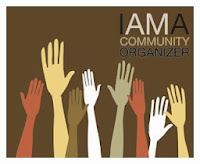Conflict Theory and Social Work Practice

Conflict Theory and Social Work Practice Subesh Raj Panta Numerous social theories are applied in social work practice at both micro, mezzo and macro level focussing mainly on human growth and development, psychological and social functioning, social and economic justice. Social work practitioners, in general conceptualize framework according to social theories developed from historical perspective to crack a problem for enhancing and creating a change. Social theories are just set of ideas developed consequently in philosophy, psychology, sociology discipline according to human responses towards different situations. Let us take conflict theory as a social work practice model.Since the early 1990s, bulk of civil conflicts have occurred. The nature of armed conflict has changed since the conclusion of the Cold War. Mark Duffield argues that new wars can also be called ‘network wars’ or ‘complex political emergencies’ by those in the humanitarian sector, as these con...





